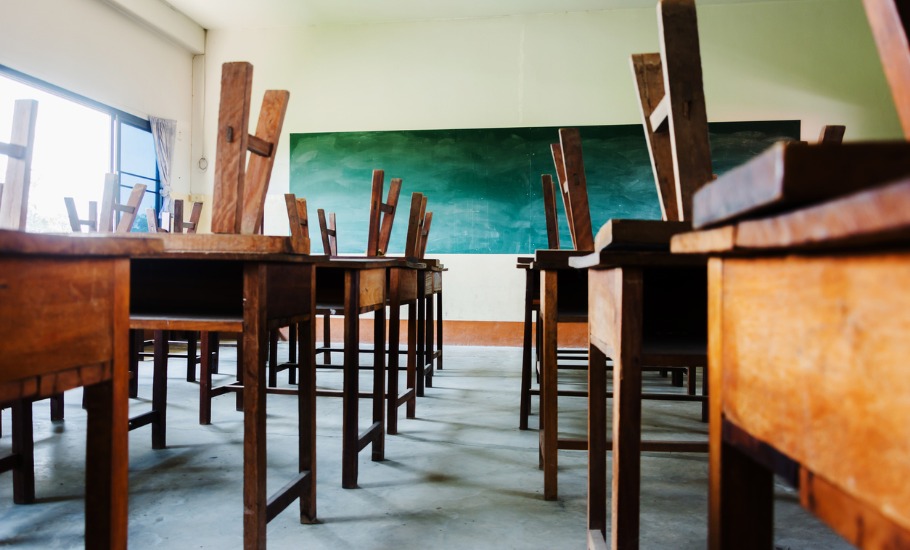
Surging COVID cases in Bengal keep students away from classes
The West Bengal government is still undecided over reopening of educational institutions as there has been no significant decline in daily COVID-19 caseload, leading to uncertainty over dates of the board exams.

The West Bengal government is still undecided over reopening of educational institutions as there has been no significant decline in daily COVID-19 caseload, leading to uncertainty over dates of the board exams.
Earlier, the government had thought of reopening the educational institutions gradually from December 1, but as there was no mark improvement in the state’s Covid scenario with the positivity rate continuing to hover over 8 per cent, it has decided against resumption of in-person classes immediately.
As the situation stands now, it would be difficult to conduct board exams for Classes 10 and 12 on usual schedules, sources in the education department said. Usually board exams for Class 10 are held in February whereas exams for Class 12 are held in March.
The West Bengal Board of Secondary Education and West Bengal Council of Higher Secondary Education have tentatively decided to hold the examinations in June i.e. after the assembly elections get over in May. A proposal in this regard has been sent to the government for approval, say sources.
Already, the government has decided to curtail the secondary and higher secondary syllabi by 30-35 per cent, adhering to recommendations of an expert committee.
The two central boards — the CBSE and the CISCE — have also curtailed their syllabi to reduce study-load as many students were finding it difficult to cover the entire syllabus through online classes.
Also read: Eyeing 2021 polls, WB govt begins massive outreach campaign
“In many rural areas, online classes have not really taken off. The government tried to reach out to students in those areas by holding classes on television, uploading study materials on the board’s website and even providing assistance over the phone. However, several students are yet to get the entire study material,” said an education department official, explaining the rationale behind reducing the course load.
The official said that even if the schools reopen in February, as it is anticipated now, it would not be possible to complete the entire course even if schools take extra classes. Moreover, the period from mid-March to early May is election time in Bengal and it would disrupt studies once again.
Also read: COVID-19: Amid high case load in WB, bright spot in recovery rate of 92.04%
The high positivity as well as fatality rates in the state has come in the way of reopening educational institutions, education department sources said.
The overall test positivity rate in the state was 8.23 per cent as against the national average of 6.6 per cent as on December 1. What is of more concern is that when the country’s positivity rate in the past 24 hours logged 3.3 per cent on December 1, West Bengal’s single day positivity rate was as high as 7.66 per cent. Of the 43,241 samples tested on that day, 3,315 were found positive.
West Bengal’s overall case fatality rate is 1.75 per cent, which is fifth highest in the country after Punjab, Maharashtra, Sikkim and Gujarat. India’s overall case fatality rate is now 1.45 per cent.
A recent analysis of the health department’s data of Bengal’s Covid fatalities among those aged 60 and above revealed that hypertension and diabetes were the two main co-morbid conditions leading to fatalities.
Among all the Covid deaths, 23.8 per cent males and 25 per cent females had diabetes. Hypertension was a co-morbid condition in 27 percent deaths in male patients and 29 per cent among females. Over 83 per cent of people who died of Covid in Bengal had co-morbidities.


